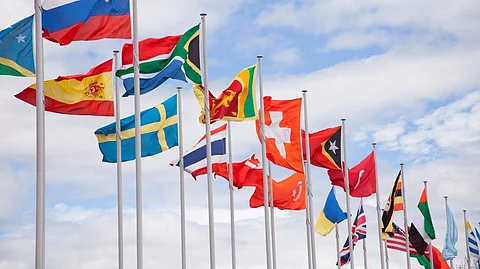
- NEWS
- the EDIT
- COMMENTARY
- BUSINESS
- LIFE
- SHOW
- ACTION
- GLOBAL GOALS
- SNAPS
- DYARYO TIRADA
- MORE

The United Nations’ (UN) latest progress report on the 2030 Agenda on Sustainable Development provides a stark assessment and a strong call for action to meet the goals in the remaining five years.
The 10th edition of “The Sustainable Development Goals (SDG) Report 2025” released by the UN on 14 July says that while millions of lives have improved, through gains in health, education, energy and digital connectivity, the pace of change remains insufficient to meet the goals by 2030.
The latest available data show that only 35 percent of targets are on track or making moderate progress, while nearly half are moving too slowly and 18 percent have regressed, according to the SDG report.
“We are facing a development emergency,” said UN Secretary-General António Guterres. “But this report is more than a snapshot of today. It’s also a compass pointing the way to progress. This report shows that the Sustainable Development Goals are still within reach. But only if we act — with urgency, unity, and unwavering resolve.”
Despite cascading global challenges, the report documents notable global achievements:
• Social protection now reaches over half the world’s population, up significantly from a decade ago.
• Since 2015, 110 million more children and youth have entered school.
• In 2023, 92 percent of the world’s population had access to electricity.
• Internet use has surged from 40 percent in 2015 to 68 percent in 2024, unlocking access to education, jobs, and civic participation.
• Between 2019 and 2024, 99 positive legal reforms were implemented to remove discriminatory laws and establish gender equality frameworks.
• As of 1 January 2025, women held 27.2 percent of the seats in national parliaments, up 4.9 percentage points from 2015.
• 5G mobile broadband now covers 51 percent of the global population.
At the same time, the report calls attention to challenges that continue to hold back sustainable development progress:
• Climate change pushed 2024 to be the hottest year on record, with temperatures 1.55°C above pre-industrial levels.
• Conflicts caused nearly 50,000 deaths in 2024. By the end of that year, over 120 million people were forcibly displaced.
• Low- and middle-income countries faced record-high debt servicing costs of $1.4 trillion in 2023.
• Nearly 1 in 11 people worldwide faced hunger in 2023.
• In 2023, 272 million children and youth remained out of school.
• In 2024, 2.2 billion people lacked safely managed drinking water, 3.4 billion went without safely managed sanitation, and 1.7 billion lacked basic hygiene services at home.
Worldwide, 1.12 billion people live in slums or informal settlements without basic services.
The report calls for action across six priority areas where intensified effort can generate transformative impact: food systems, energy access, digital transformation, education, jobs and social protection, and climate and biodiversity action.
